Finding it difficult to make contact online with certain indie authors, the highly successful historical novelist Helen Hollick, now self-published, urges writers to stop playing hard to get.
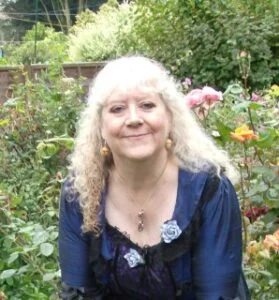 Is there anyone there? Are you easy to contact? I was recently one of a number of indie authors (several of them ALLi members) listed in the UK Guardian newspaper's “Readers’ Recommended Self Published Authors” list with my UK indie-published novel Harold the King. Needless to say, being selected out of 3,347 entries I was thrilled, but not just for myself. This sort of support is fantastic for all indie writers who want their books to stand alongside mainstream published novels. It is wonderful to know we are getting the recognition we at last deserve. Indie does not mean rubbish writing: it means hard work and great pride. As long as it is done properly, with good writing, and mainstream quality production. No left-justified text or use of Comic Sans or italic font throughout!
Is there anyone there? Are you easy to contact? I was recently one of a number of indie authors (several of them ALLi members) listed in the UK Guardian newspaper's “Readers’ Recommended Self Published Authors” list with my UK indie-published novel Harold the King. Needless to say, being selected out of 3,347 entries I was thrilled, but not just for myself. This sort of support is fantastic for all indie writers who want their books to stand alongside mainstream published novels. It is wonderful to know we are getting the recognition we at last deserve. Indie does not mean rubbish writing: it means hard work and great pride. As long as it is done properly, with good writing, and mainstream quality production. No left-justified text or use of Comic Sans or italic font throughout!
Testing Top Indie Authors' Discoverability
I decided to follow up the list by contacting all the authors mentioned, primarily to say congratulations, but also with a view to possible reciprocal guest posts etc. After all, marketing our books is all about networking, isn’t it? In some cases, apparently not. Quite a few of the listed authors were not easy to contact. A couple I could not find at all. I googled each name.
- All had their books listed on Amazon (.co.uk and .com) but not all had corresponding Author Profiles.
- Most were on Goodreads – but again, not necessarily with details of who they were, information about their book/s, and no e-mail address or website link.
- Ditto Twitter, and for one person even their blog did not make it obvious this was an author with a published book!
- More than a few did not seem have an informative website or blog.
I was amazed to discover that several of the listed authors had no easy to find and use “Contact Me” link. So how could I contact them to say “well done”? And more important, how do potential readers give feedback or ask about a next book? Without an easy-to-find contact method, how do these authors create a fan base following? I guess they don’t!
One person even had their Facebook page set to private. This is all well and good if you do not want to be noticed, but useless for selling books. I did find a couple of names on Facebook, but had no idea if this was the right person I wanted to contact.
I have two Facebook pages, a personal one, which I use for my own posts, about my books, things I’m doing, amusing images – anything of public interest related to me or my public life. My Author Page is more like a shop window; I am happy to advertise other writers’ books, and links to various guest posts. My tag line is ‘A sort of Readers' and Writers' Meeting Place.’ And my headline image is very clearly about my books!
Two of the people on the list I gave up trying to trace. So, if you want people to respond to your networking, make it obvious who you are and what you do. Make your blog, Facebook and Twitter pages public so anyone can see your posts and can contact you easily. This means, of course, you do not post anything personal. If I want to say something in private to my friends, I e-mail them. Facebook and Twitter are not the places for inviting people to a private party! If you would rather have a personal social network page, that is fine, but have two: one for private, one for public.
Top Tips for Easy Reader Contact
Putting a contact link on a website or blog is so easy – add it to the top menu bar, make it clear you want to hear from your readers because you value their feedback and friendship. And if you do get an email from a reader, answer it as soon as you can. If you don’t, that reader might not buy your next book, or recommend you to other readers.
Selling books is not about reviews and high ranking on Amazon – it is about friendly, on-going contact with your readers.
Editor's note: Helen Hollick is not only easily discoverable herself – she also generously helps other authors become more discoverable by hosting fantastic blog hops (a topic for another post another day. But in the meantime, here's an example – her Winter Solstice Blog Hop, which I was fortunate to join. Helen opened this 30-author-strong hop with an entertaining post of her own about 1* reviews – well worth a read!



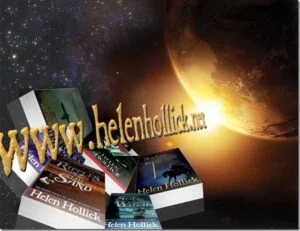
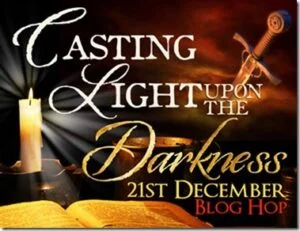
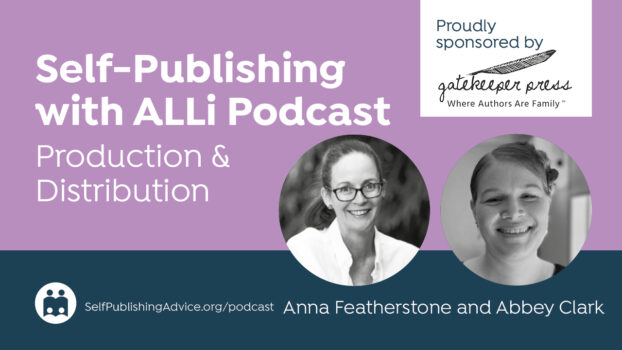
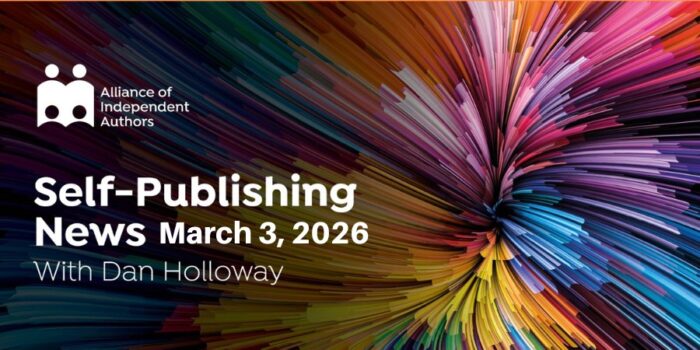
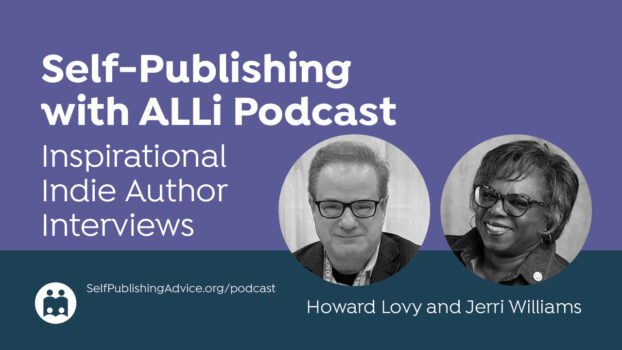
[…] Opinion: Every Author Should Be Easily Discoverable Online […]
This is a good article, a great reminder. I’ve allowed myself to become a bit more free thinking in terms of my blog because I wanted to make myself more visible to people. I also starting searching around for other bloggers that I might find interesting and make a point to visit them fairly regularly and leave comments. I know this is good for them and for me as it increases my visibility, and I get to make some great connections with cool people.
This piece also has me thinking about my various profiles from Amazon to LibraryThing, I know I’m lacking in at least a few of these places. It seems such a simple thing, contact, and yet it’s so easy to overlook. Thank you for reminding us all how important it is to be seen. I know I’ll be doing some reviewing of my various memberships and profiles as a result of this.
Cheers to all!
eLPy
author of “That Which Lives Within”
http://www.littlefacepublications.com
As Helen points out there’s no excuse now for hiding one’s light under a bushel.
[…] Why Every Indie Author Should Be Easily Discoverable Online by Helen Hollick […]
Great article, Helen. I was nodding my head the entire time I read your article. Not having some kind of web presence can really, really hurt an author. I can’t think of how many times I’ve looked for an author online and there was little to no information on them or their books. Many readers often pick up books without any knowledge of who the writer is, and it’s only when they finish the book that they take interest in the writer as a person—and being there and having that interaction with your fans keeps them engaged.
Thanks Helen for this …. I am now contemplating an e-newsletter to contact & enthuse my readers… and how to make my blog more visible…
Great article. It is quite amazing how many authors are clueless when it comes to the online component of their reader outreach. That’s why we are conducting an important independent survey of how readers discover books in 2013.
I’m hoping you will support this initiative help us spread the word to your legion of followers and readers. The results of the survey are sure to be beneficial to indie authors everywhere.
Here is a message crafted to pass on: Hi, Do you like Free-eBooks? Do you like Amazon.com giftcards? Well, if you take about 5 minutes and complete this survey on how you discovered books in 2013, you will receive 5 FREE ebooks and be registered to win a $150 Amazon giftcard … so provide your feedback, opt-in, and get ready to receive! http://bit.ly/JLejoz
And here is a tweet that can be shared as well: #Bookworms win #5booksin5minutes! Take this survey! bit.ly/JLejoz
Thanks for your support!
Crawling towards getting myself into better visibility: not “introverted’ but have been overwhelmed by all the ‘advice’ on ‘how-to’ – hoping to do better and get it going in 2014… thanks for the encouragement of ALLi people who always write positively about how we writers can move ahead… !! aka Mari Howard – must write a bit more blog over the hols!
Good article Helen. I am amazed at how often authors lack even a basic web page. Having some online presence is essential. The same is true in the other interest of mine (which Helen knows about) games. I run a large hobby games convention and try to list all the exhiitors and often have to try and persuade some to have at least a facebook page. Whether its selling games or books you need to be contactable.
I have recently become convinced that reader interaction is where indie authors should focus rather than any other marketing ploy.
I’m not convinced that typos are our undoing. Like a previous poster said, even traditionally published books have typos, grammatical errors, and even poor editing choices. I haven’t ever held these mistakes against traditional publishers (even as a child) why should I hold it against indies?
It was a privilege to join in your latest blog hop, Helen. You are an energetic promoter of other writers’ work – all credit to you.
I think another measure of recognition, Dan, will be when readers, and people in general, realise that as in mainstream, self-publishing has various levels of quality. The poor, both in content and production terms, can be abysmal. The good can be better in every way than a lot of mainstream works. I’m only a beginner at this game, but I hope that 2014 will see the beginning of this type of recognition and the end of being lumped together in one pile.
yes, I think that’s already happening amongst indie authors – we are realising that we have as many differences as similarities – in itself this is a sign of the progress that we’ve made, that we have time for such reflection. The next step is for the outside world to appreciate the differences, and the different values we all bring
Fabulous news that you were included in the Guardian list – wonderful to start seeing indie recognition, especially there.
Very interesting that some authors were so hard to find – I wonder if in some cases it’s a pseudonym?
If you’ll allow me one last giant barbaric yawp of the year 🙂 :
“Indie does not mean rubbish writing: it means hard work and great pride. As long as it is done properly, with good writing, and mainstream quality production. ”
It would be lovely if we could start being proud not of doing it right or working hard – these are admirable personal traits but not things that make a book the one thing that a reader should drop everything and put aside every classic that’s ever been written for. Amazing, like nothing else, drop dead stunning storytelling, voice, and characters – we are progressing, yes, but we will truly have arrived when people start acknowledging those and not the quality of our covers and lack of typos
I think of indie as a way to get published great books which would otherwise run afoul of gatekeepers – allowing the writer’s natural audience to find her.
Even under the best of circumstances (and without even considering finances), Big Pub can only produce and distribute so many books per year – so even good work that they might publish can get the shaft.
Which means readers don’t even get to choose.
Let the readers pick the winners, with the caveat that if a book is the right one for you to read, as long as you can find it, a tiny group of readers is good enough.
In the day of 7 billion potential readers on the planet, a tiny group could be more than enough to support an author’s worldview and storytelling.
yes, absolutely
“Fabulous news that you were included in the Guardian list – wonderful to start seeing indie recognition, especially there.”
You wouldn’t be encouraging her to take yes for an answer, now would you, Dan?
Shame on you!
😉
Thank you ALLi for posting my little piece – I notice on Blogger there is now an easy to use Contact App which can be added to the side bar.
I love hearing from my readers, that is the best thing about being an author – the world has opened up to meeting new and wonderful friends!
Thanks, Helen, for a great post! Very sensible advice as usual.
Thanks Lucienne!